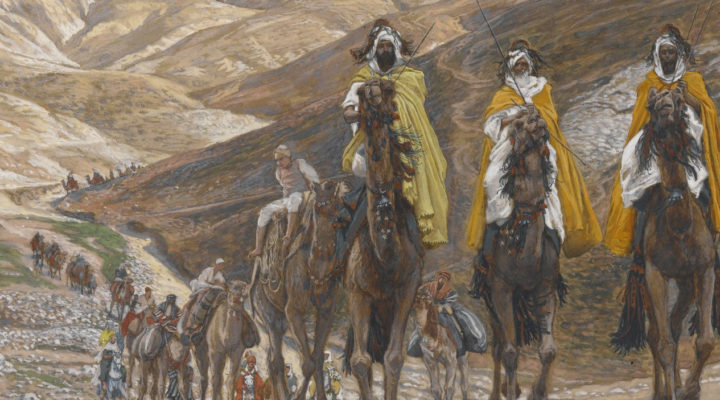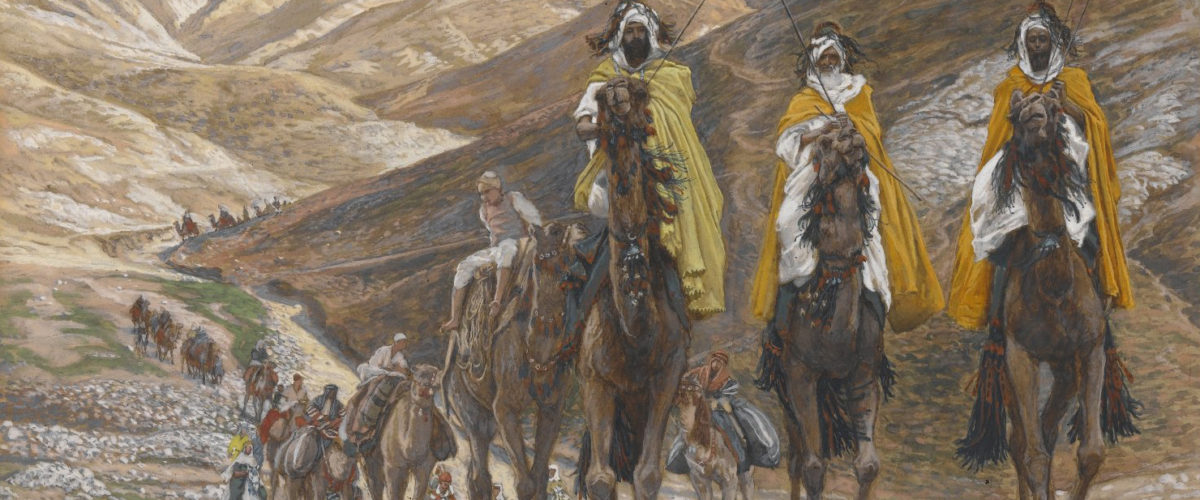Some days are significant for multiple reasons. Take Epiphany, for instance.
Long before I knew what Epiphany was, I knew it was my friend’s birthday. Halfway between mine and my wife’s birthdays, we celebrated him on the sixth day of the New Year.
Then somewhere along the way, someone pointed to a Nativity scene and said, “You know, the wise men shouldn’t actually be present because they didn’t arrive until much later.” Discovering this celebration was located 12 days after Christmas was an epiphany to me. (Sorry, I couldn’t resist.)
Insisting on accuracy, my wife strategically locates our camel-riding Magi on the piano opposite our Nativity — on the east side of our house, no less.
Often referred to as the “Wise Men” or the “Three Kings” (although we only suppose there were three because of the three gifts mentioned), they are more accurately Magi. The Magi had seen a new star and followed it because they believed the birth of a new ruler often was accompanied by signs in the heavens.
Most everyone knows the Magi brought gifts with them — gold, frankincense and myrrh — to honor this new ruler. Only problem is, old rulers don’t generally like new rulers.
When the Magi arrive at the palace (where else would a king be born?), King Herod is alarmed by the news. No doubt noticing their gifts, Herod greets them: “Welcome to my kingdom!” (Do they detect an emphasis on “my” before he continues?)
Trying to conceal his fear by lying, conniving Herod says: “Go find this child and then return and tell me where I can ‘worship’ him too!”
But he is no more convincing than the Grinch lying to Cindy Lou Who. Herod has no intention of ceding the throne to a new ruler. In fact, he is so insanely insecure that he already had murdered several members of his own family.
Like the Grinch, he’ll destroy the whole town if that’s what it takes to achieve his goal. And so, desperately clutching to his position, Herod wreaks havoc on innocent lives.
“The power of love — not the love of power — changes the world.”
Herods old and new always grope for the levers of power to try to change the world, completely oblivious to the example of the Epiphany story: The power of love — not the love of power — changes the world.
But we seem to have forgotten that lesson, so Epiphany now has one more added significance. Sadly, it was again paired with violence when the deceit and destruction displayed two millennia ago were mirrored four years ago on January 6.
Epiphany means “a revealing.” So what is this new epiphany revealing about us? Have we learned from the danger of deception like the wise men who thwarted Herod’s plan to kill the Truth?
Or are we closing our eyes to our complicity and support as we continue pursuing a passion for power that pushes God personified into a midnight exodus in a foreign land?
Thank God Matthew’s Gospel record of that first Epiphany was not censored or submarined by Herod’s lawyers in an effort to prop up a false narrative. Only the truth can prevent that kind of brutality again. But only if we listen to it.
We would be wise to remember the weeping heard in Bethlehem after the Truth was forced to flee.
Steve Cothran is a native of Greenville, S.C., and holds degrees from Furman University, Southern Baptist Theological Seminary and Campbell Divinity School. He has served churches in Florida, North Carolina and Georgia, as well as six years in Kentucky where he and his wife, Nancy, were on the same staff together. He has written curriculum for Smyth & Helwys, CBF and d365, enjoys writing regular columns for the Newnan Times-Herald, and dreams of being the oldest cast member on Saturday Night Live.
Related articles:
The death of truth | Opinion by Mark Wingfield
Ye shall know the truth, and? | Opinion by Bill Leonard
Epiphany: Manifesting the bias of heaven | Opinion by Ken Sehested



